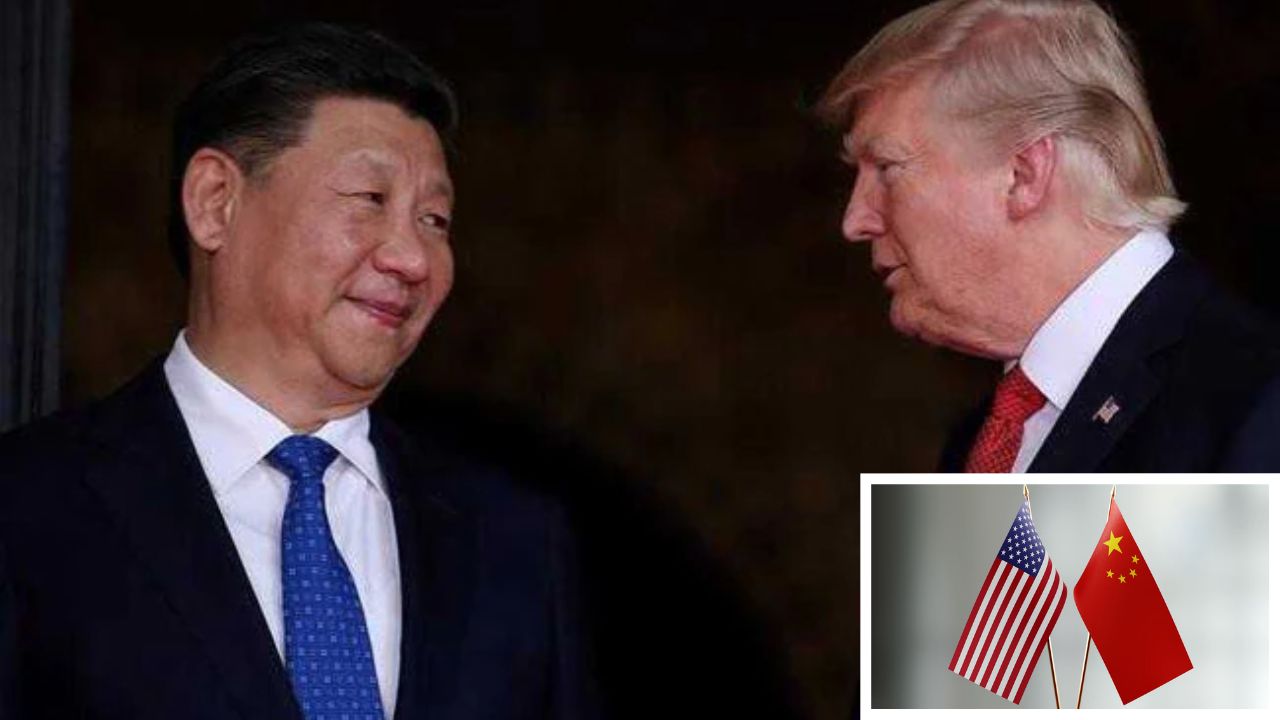 English
English

“Xi knows the consequences,” warned President Trump, hinting at U.S. resolve if China moves on Taiwan. But what did he mean by it and how far will America go to defend the island? Here’s what Trump said and why it matters now.

Trump has issued a strong warning to Chinese President Xi Jinping
Washington: US President Donald Trump has issued a strong warning to Chinese President Xi Jinping, saying that Xi “knows the consequences” if China launches a military action against Taiwan.
Trump made the remark during an interview on CBS’s 60 Minutes aired on Sunday, hinting at Washington’s firm stance on the Taiwan issue while maintaining deliberate ambiguity on the scope of any US response.
Trump ready to put knife on Xi Jinping’s neck, USA plans to choke China’s navy
When asked if the United States would intervene militarily should Beijing attempt to seize Taiwan, Trump declined to elaborate. “You’ll find out if it happens,” the President said. “He understands the answer to that very well.”
According to the President, the Taiwan issue did not come up during his latest meeting with Xi Jinping held in South Korea last Thursday. The talks primarily focused on U.S.–China trade relations and regional stability.
“This never even came up yesterday as a subject,” Trump said. “He never brought it up, and people were a little surprised by that. But he understands it, and he understands it very well.”
The comments have stirred diplomatic discussion, as the Biden administration’s earlier policy of “strategic ambiguity” continues under Trump’s current tenure a stance that avoids confirming whether the U.S. would come to Taiwan’s defense while warning China against any unilateral action.
Beijing views Taiwan as an inseparable part of its territory and has not ruled out using force to achieve unification. The island, however, functions as a self-governed democracy with its own government and military.
In recent months, China has increased its air and naval activity around Taiwan, escalating fears of a confrontation in the Taiwan Strait. The Trump administration has repeatedly cautioned Beijing against “provocative actions,” while reaffirming its commitment to maintaining peace and stability in the Indo-Pacific region.
The Taiwan Relations Act of 1979 continues to serve as the foundation of US-Taiwan relations. While it does not obligate the United States to militarily defend Taiwan, it mandates that Washington ensure the island has adequate means to protect itself.
Another heartbreak for Trump? US president leaves South Korea with no word from Xi meet
Under Trump’s leadership, the U.S. has strengthened defense cooperation with Taipei, including arms sales and joint military exercises, as part of a broader effort to deter aggression and uphold freedom of navigation in the region.
President Trump’s brief but pointed warning underscores the United States’ ongoing strategy of keeping its exact response uncertain a diplomatic balancing act aimed at deterring both a Chinese invasion and a unilateral declaration of independence by Taiwan.
With tensions simmering in the Indo-Pacific, Trump’s remarks serve as a reminder of the fragile equilibrium between Washington and Beijing and the high stakes surrounding the Taiwan question.
No related posts found.